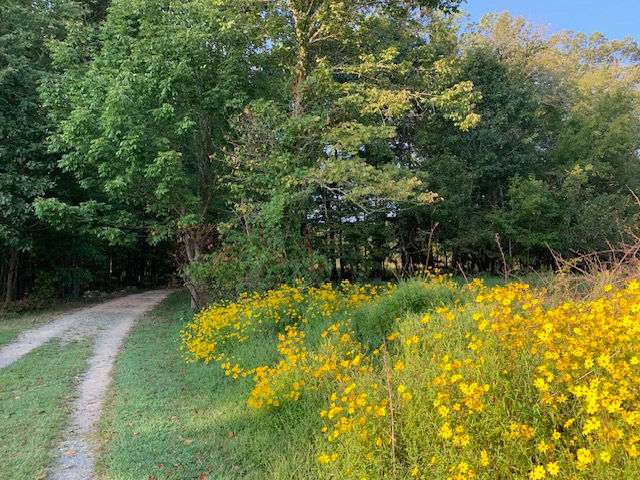Shame, lying, self-love affirmations, and telling the truth
- Tracey O'Connell

- Nov 17, 2023
- 4 min read
Updated: Aug 3, 2024

If you’re wondering “when will I love myself,” you’ll definitely benefit from listening to episode #258 of the We Can Do Hard Things podcast.
Abby asks, "Why Can't I Love Myself" was especially gorgeous. After 25 years in therapy asking,“When will I love myself?,” I had a therapist recommend that I listen to Affirmations by Belleruth Naparstek daily for 30 days (I see it's now on Audible. I got it on iTunes.) Being a lifelong hyper-achiever, I listened to Belleruth Naparstek’s Affirmations for Stress twice a day for 2 months and "reprogrammed my hard drive." Like Abby, I thought I could never love myself. I was wrong. This audio took the work out of my growth and expansion. I simply turned it on and followed the instructions.
Regarding the We Can Do Hard Things (WCDHT) lying episodes #242 and #248: I understand why we lie. I also don't think it's something we should accept as "the way it is." Honesty, authenticity, and integrity are values that Glennon, Abby, and Amanda seem to be committed to. These are my professed values as well. But many have lost trust in the institutions we thought would protect us: government, politics, religion, education, marriage, and more. We don't trust them because they have betrayed our understanding of how they would keep us safe with false promises and lies. We don’t trust them. We don’t trust ourselves because we trusted them. We don’t see ourselves as trustworthy for trusting “wrong.” Lying has led to disconnection with ourselves and disconnection with those around us.
When we lie, rather than telling the truth, we are out of our integrity. The stories of people lying that were shared on the We Can Do Hard Things podcast lying episodes were hilarious- and also- gave me pause. Like the person who ate someone's yogurt but didn't want to admit it, so avoided eating milk products for the rest of their relationship rather than just telling the truth, owning it, apologizing, making amends. It's funny, and it's not funny.
About 15 years ago, after Belleruth Naparstek’s Affirmations brought glimmers of hope as I struggled to find out when I will love myself, I undertook a personal mission to repair ways that I had behaved out of alignment with who I'd like to think I am. My regrets had shown me that I'd grown and learned things about myself that I don’t like, things I’d done that didn’t allow me to love myself. Like Maya Angelou said, "When you know better, you do better." I needed to own up to my "mistakes"- because I knew better.
In 1991, my senior year of college, I started using my roommate's deodorant. I don't know why. When she confronted me about it, I denied it. One day, she came out of the bathroom and said, "I KNOW you are using my deodorant. I set a trap with a hair from my head that I wrapped around my toiletries and now the hair isn't there. I know that you used my deodorant." Still, I denied it. More than 25 years later, I remembered doing this and struggled to remember why. Was it the money? Laziness? I didn't know. But I needed to make it right. I went to Target and bought one of every brand of deodorant sold. I put them in a box and shipped them to her with a written apology. I didn't hear anything back from her, so I reached out, asking if she'd received it. She had and told me I didn't need to do that. She didn't say, "I forgive you" or ask questions. Maybe she thought I was psycho. It doesn't matter because I forgave myself. I owned what was true. It's never too late to repair.
Back to Abby: The same way loving another is built on trust ("I trust you, Glennon. I TRUST you."), self-love is built on self-trust. When we lie to others, even about tiny things, we are lying to ourselves. We are denying something that's true about ourselves and burying the shame. It doesn't protect us in the long run. It erodes our self-trust. It keeps us from loving our whole selves, our shadow sides. Shame grows in the dark. Shame is the fear of disconnection. Betrayal is disconnection.
Glennon distinguishes herself from Brene Brown by saying that Brene does research on others' shame while Glennon does research on her own shame. WCDHT has also repeatedly demonstrated that vulnerability isn't about "sharing your story with those who have earned the right to hear it" as BB says. WCDHT has shown us that vulnerability isn't sharing something that was hard that's no longer hard to talk about. Rather, vulnerability is sharing your story in the messy middle before you have everything figured out; sharing the imperfect stories of struggle as we are trying to figure things out; making repairs for all the damage we do to others and ourselves as we figure things out.
When it comes to honesty, integrity, authenticity and building trust, somebody has to be the first to risk vulnerability, with all of its uncertainty and emotional exposure, to demonstrate commitment to the Self's authenticity.
I am willing to go first.
Are you?




Comments